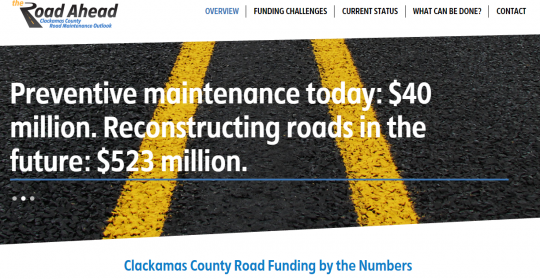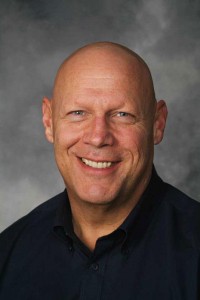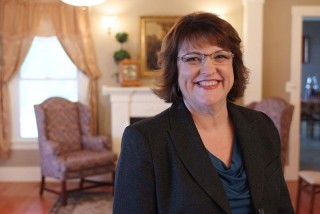As Chinese and U.S. leaders have been negotiating the first-ever bilateral deal to cut carbon pollution in both countries, some local government leaders have been calling for Americans to give up on carbon-reduction efforts.
Their argument: because they think China and other countries are unlikely to reduce their carbon emissions, Americans shouldn’t try to reduce theirs.
The fight matters to transportation because it’s playing out in the Metro regional government’s Climate Smart Communities Scenarios Project, which will influence the amount of money available to spend on new roads, freeways, transit lines and off-street paths over the next 25 years.
John Ludlow, chair of the Clackamas County Commissioners, has been one of the loudest voices for more roadway spending.
“When they continue to pour in money to bike paths they take it away from roadways,” he told the Portland Tribune for an article this week. “Freight can’t use a bike path.”
The Tribune piece goes on to quote other Clackamas commissioners:
“I am a big-time skeptic of human-caused climate change,” Ludlow says, adding that even if Climate Smart is successful, countries like China will quickly counteract it. “It’s great to do this if one believes in it, but it is just a drop in the bucket on the world scale.”
Commissioner Martha Schrader says there are other benefits to be realized by improving transportation solutions, such as air quality and economic inequity.
“I do think the climate’s changing, I don’t know if we’re causing it or not, but oh well,” Schrader said during an Oct. 21 board meeting.
“I think that’s the issue,” replied Commissioner Tootie Smith. “Whether it’s manmade or not or would it happen anyway, despite our efforts?”
Metro spokesman Craig Beebe is quoted talking about the downsides of widening roads that are free to use:
“In the long-run, congestion actually ends up being really bad anyway because that lane fills up with more cars,” Beebe says. “On its own, it wouldn’t get us to the goal that we need to get to.”
“So?” responds Ludlow. “For 20 years we’ll be able to move more people, we’ll be able to move more freight. It’s pretty lame, I think, to say: well, why do it at all, it’ll just fail eventually.”
Advertisement
Two weeks ago, as we reported, the same commissioners were arguing that wider streets and highways actually reduce carbon emissions.
Metro’s Regional Transportation Plan already allocates 58 percent of the funding on its “constrained” project list to streets and highways. About 36 percent would go to transit projects and 6 percent to dedicated biking and walking projects. (Many street and transit projects also include sidewalk and bike lane upgrades, however.)
Even as Ludlow and his peers are lobbying Metro for more money to widen their roads, they’ve launched a slickly designed website documenting Clackamas County’s $17 million road maintenance shortfall, part of an effort to build political support for a local tax or fee.

Metro grants for new transportation projects, which flow from the federal gas tax, do not come with additional maintenance or operation commitments.
Metro is facing a Dec. 31 deadline from the state legislature to pass its Climate Smart Communities Strategy, which is intended to cut tailpipe pollution 20 percent by 2035. The Metro Council is planning to vote on the strategy next month but is first hoping for the consensus their major initiatives usually enjoy among all local elected officials.
After a climate strategy is approved, the debate over road funding ratios is likely to continue as the region spends the next four years negotiating a new 25-year Regional Transportation Plan, its multibillion-dollar project list of future infrastructure spending.
Bicycle Transportation Alliance Advocacy Director Gerik Kransky, sitting in at a joint Metro meeting last week to resolve these issues, used strong language to describe what he saw going on.
“I’m shocked by the apparent disdain some of these people have for our legitimate effort to reduce carbon emissions from transportation,” he tweeted, saying that a minority of local politicians “appear desperate to resist a comprehensive approach to addressing climate change. … I hope sane minds can prevail on this question.”
In related news, Metro is soliciting applications for citizen members of its influential Transportation Policy Alternatives Committee.



